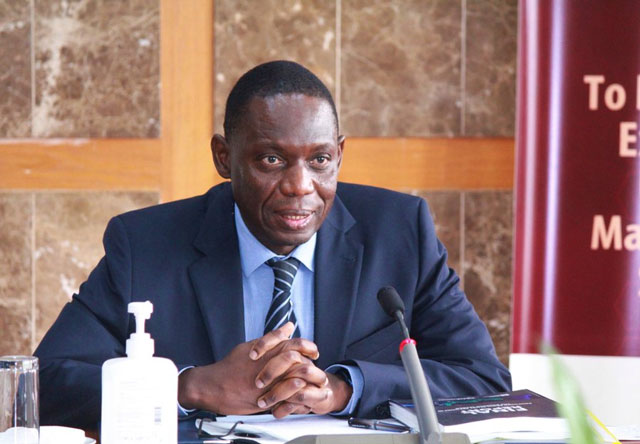
Kampala, Uganda | THE INDEPENDENT | The Bank of Uganda has decided to maintain the Central Bank Rate (CBR) at a high 9.5 percent despite further drops in inflation rates in the month of September.
The CBR is a tool that the central bank uses to direct the cost of money (commercial bank interest rates) and in turn, control inflation by way of influencing the flow of money into the economy.
The annual headline inflation rate dropped to 2.7 percent from 3.5 percent recorded in August, while the core inflation (which excluded food and energy) fell from 3.3 to 2.4 percent, the lowest in 22 months.
Despite that, BOU Acting Governor, Michael Atingi-Ego says though the inflation has been brought under control, there are risks to the situation, including possible poor agricultural output which could lead to high food prices, hikes in interest rates, and high global commodity prices.
He, however, says that the low inflation is due to lower spending by the public which has an impact on the economy.
The downward inflation trend is expected to continue for some months due to lower imported inflation, lower food prices, and low public demand for goods and services, before starting to rise again towards the 4 to 5 percent levels by the end of next year.
But these are all predictions as it is possible for the country to experience a bumper agricultural output, as well as a continued fall in prices of imports.
What could push up the inflation include a fall in the foreign exchange rate, escalation of the geopolitical situation in Europe and between the West and China, as well as further cuts in oil production by the producing countries.
For now, Dr Atingi-Ego says that as inflation remains under control, the Monetary Policy Committee expects to continue easing the policy rates.
Over the last two months, the economic prospects and outlook have remained largely the same, according to the estimates by the Uganda Bureau of Statistics.
The second quarter of calendar year 2023 recorded a real GDP growth of 5.2 percent, compared to 0.4 percent growth recorded in the first quarter, the growth coming mainly from the industry and services sectors, according to UBOS.
These two are expected to continue driving economic growth, boosted by investments in the oil and gas and mining sectors, according to BOU, and a rate of around 6 percent is expected for the financial year 2023/2024 if the risks do not come to pass.
The Deputy Governor also downplayed the immediate effect of the World Bank statement earlier this year that it was halting future loans to the country.
He says that for this year, affected expected loans are worth about 36 million dollars (about 135 billion shillings), while those already approved by the board will continue being disbursed under strict monitoring by the World Bank.
Atingi-Ego, however, says that even as alternative sources are being sought to cover the impending gap left, talks are still going on between the government represented by the Ministry of Finance, Planning and Economic Development and the World Bank to resolve the impasse.
****
URN
 The Independent Uganda: You get the Truth we Pay the Price
The Independent Uganda: You get the Truth we Pay the Price



